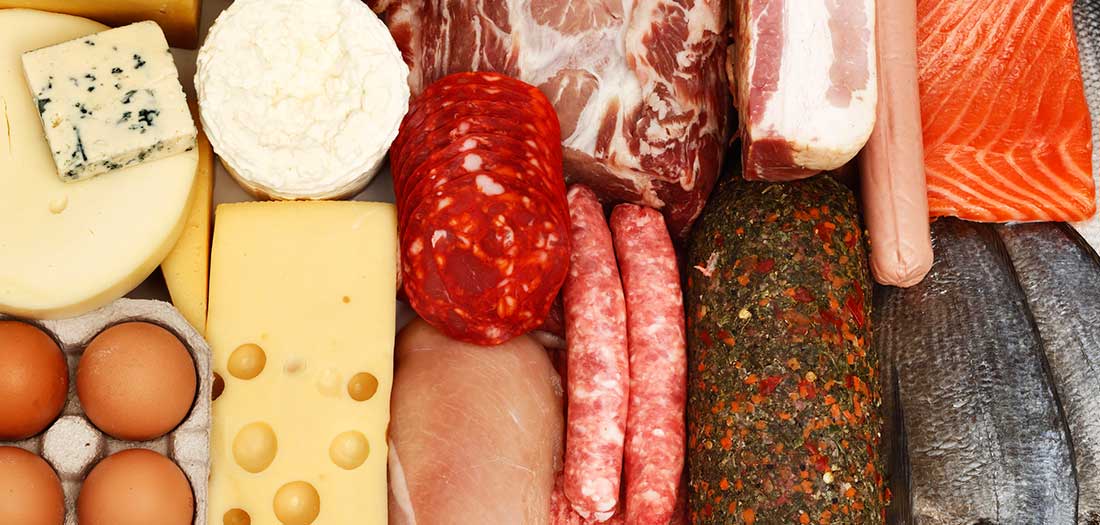The human body obtains nutrient energy (calories) from three macronutrients: fat, carbohydrates and protein. Fat functions as a source of energy to muscle at rest, helps carry fat-soluble vitamins and contributes to the structure of every cell in our body. Carbohydrates provide the primary fuel for most bodily functions and are the preferred fuel for the brain and entire nervous system. Protein is vital for cell turnover and antibody production, and assists the body in maintaining fluid balance. It is because of protein’s association with muscle rebuilding and repair that it’s easy to get carried away with the notion of “a little is good, so a lot must be better,” particularly in the quest for creating a more favorable body composition. But the truth is that excess calories, regardless if they come from fat, carbohydrates or protein, will be stored as fat tissue and can contribute to weight gain.
Recommended Protein Intake

For most adults, the Recommended Dietary Allowance (RDA) for protein intake is about 0.8 grams per kilogram of body weight. This recommendation can differ, however, depending on an individual’s life stage, health status, and even physical stress. Infants (0-6 months), for instance, have the highest protein needs in relation to their size at 1.52 grams per kilogram of body weight. During pregnancy and lactation, a woman’s need for protein increases from the standard 0.8 grams to 1.1 grams of protein for every kilogram of body weight. Physical stress such as severe burns can increase an individual’s protein requirement twofold. And athletes who train on a regular basis may benefit from levels of protein as high as 1.2 to 1.7 grams per kilogram of body weight, based on muscle cell turnover and repair.
To Supplement or Not To Supplement

Using the standard 0.8 grams of protein requirement for every kilogram of body weight, an average 154 lb. male would need about 56 grams per day and a 125 lb. female would need 46 grams. According to a national health survey, men consume an average of 101.9 grams/day, while women are taking in an average of 70.1 grams (Fulgoni, 2008). Based on these statistics, the average American consumes much more protein than he or she actually needs. Therefore, it’s likely that most individuals, even elite athletes, can easily meet their requirements by simply consuming a healthful diet without necessitating the use of protein supplementation.
Sustained Energy

The idea that various nutrients are consumed and processed at different speeds through the body may sound unusual, but there is validity to this notion. Protein is a slower-digested nutrient that causes a higher thermogenesis, which is the process of burning calories. Therefore, it’s theorized that when an individual consumes adequate protein intake, they are more likely to feel satisfied longer. This satiety may translate into greater weight-management ability (Paddon-Jones, 2008).
Healthy Diets Require Balance

It’s clear that protein supports a multitude of vital functions in the body and is needed in various amounts depending on our stage of life and health circumstances. However, it’s important to remember that one’s health status can be affected by a number of other factors, including lack of exercise, smoking and too little sleep. Ensuring an overall healthy lifestyle that includes a balance of these factors may go much further in the pursuit of better health.
References
Fulgoni, V. (2008). Current Protein Intake in America: Analysis of the National Health and Nutrition Examination Survey, 2003-2004. American Journal of Clinical Nutrition, 87(5), 1554S-1557S.
Paddon-Jones, D., Westman, E. (2008). Protein, Weight Management and Satiety. American Journal of Clinical Nutrition, 87(5), 1558S-1561S.
 by
by 








